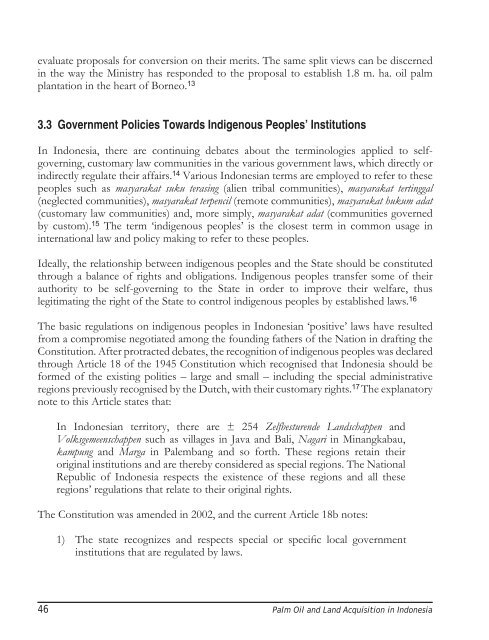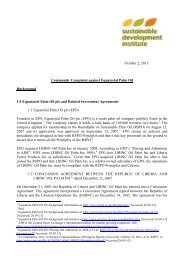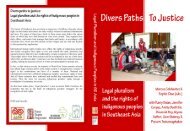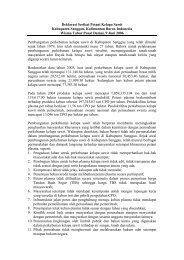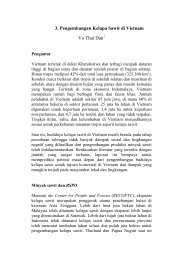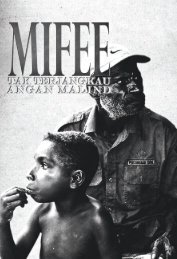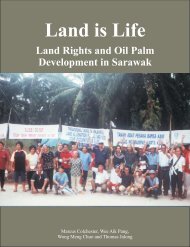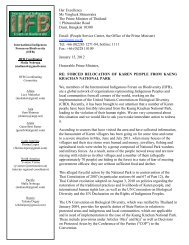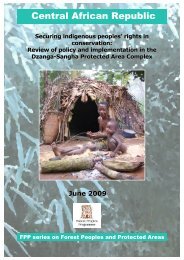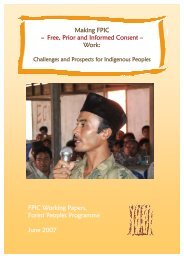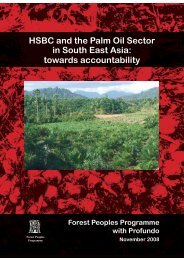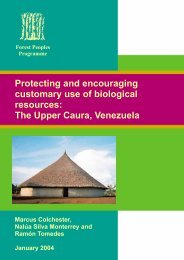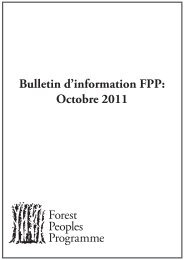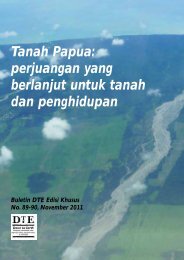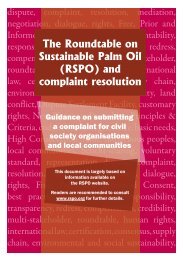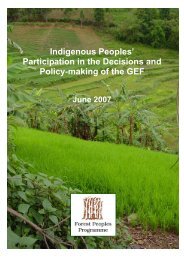Final Land Acquisition Book English.indd - Forest Peoples Programme
Final Land Acquisition Book English.indd - Forest Peoples Programme
Final Land Acquisition Book English.indd - Forest Peoples Programme
You also want an ePaper? Increase the reach of your titles
YUMPU automatically turns print PDFs into web optimized ePapers that Google loves.
evaluate proposals for conversion on their merits. The same split views can be discerned<br />
in the way the Ministry has responded to the proposal to establish 1.8 m. ha. oil palm<br />
plantation in the heart of Borneo. 13<br />
3.3 Government Policies Towards Indigenous <strong>Peoples</strong>’ Institutions<br />
In Indonesia, there are continuing debates about the terminologies applied to selfgoverning,<br />
customary law communities in the various government laws, which directly or<br />
indirectly regulate their affairs. 14 Various Indonesian terms are employed to refer to these<br />
peoples such as masyarakat suku terasing (alien tribal communities), masyarakat tertinggal<br />
(neglected communities), masyarakat terpencil (remote communities), masyarakat hukum adat<br />
(customary law communities) and, more simply, masyarakat adat (communities governed<br />
by custom). 15 The term ‘indigenous peoples’ is the closest term in common usage in<br />
international law and policy making to refer to these peoples.<br />
Ideally, the relationship between indigenous peoples and the State should be constituted<br />
through a balance of rights and obligations. Indigenous peoples transfer some of their<br />
authority to be self-governing to the State in order to improve their welfare, thus<br />
legitimating the right of the State to control indigenous peoples by established laws. 16<br />
The basic regulations on indigenous peoples in Indonesian ‘positive’ laws have resulted<br />
from a compromise negotiated among the founding fathers of the Nation in drafting the<br />
Constitution. After protracted debates, the recognition of indigenous peoples was declared<br />
through Article 18 of the 1945 Constitution which recognised that Indonesia should be<br />
formed of the existing polities – large and small – including the special administrative<br />
regions previously recognised by the Dutch, with their customary rights. 17 The explanatory<br />
note to this Article states that:<br />
In Indonesian territory, there are ± 254 Zelfbesturende <strong>Land</strong>schappen and<br />
Volksgemeenschappen such as villages in Java and Bali, Nagari in Minangkabau,<br />
kampung and Marga in Palembang and so forth. These regions retain their<br />
original institutions and are thereby considered as special regions. The National<br />
Republic of Indonesia respects the existence of these regions and all these<br />
regions’ regulations that relate to their original rights.<br />
The Constitution was amended in 2002, and the current Article 18b notes:<br />
1)<br />
The state recognizes and respects special or specific local government<br />
institutions that are regulated by laws.<br />
46 Palm Oil and <strong>Land</strong> <strong>Acquisition</strong> in Indonesia


